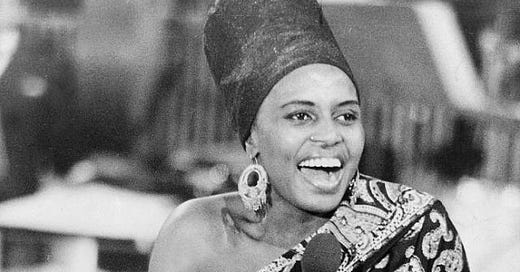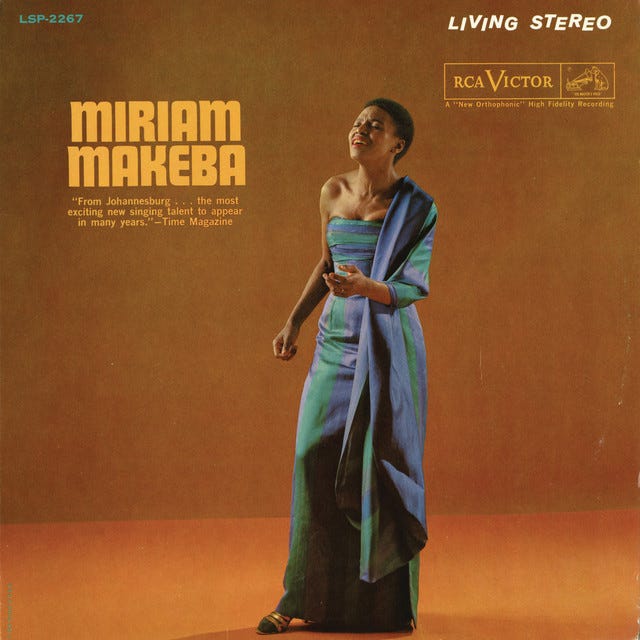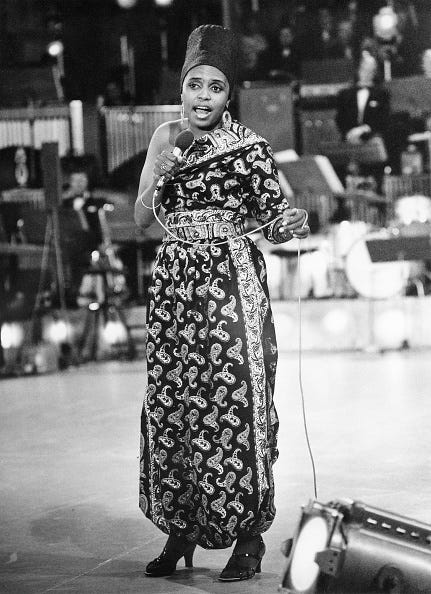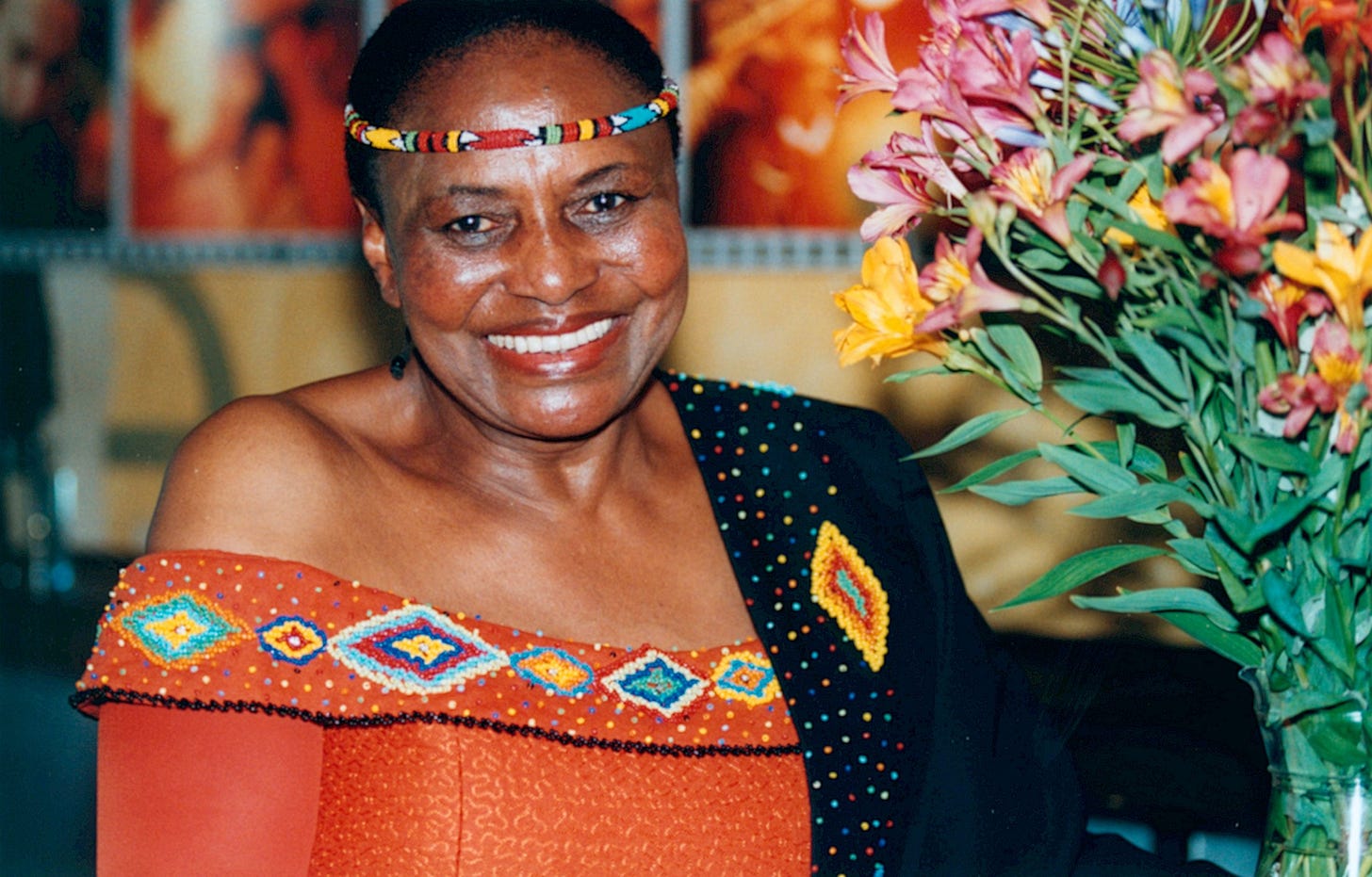How Miriam Makeba defined Pan-African fashion as a tool of resistance
15 years after her death, the pop star still influences Afrocentric fashion and beauty ideals in the post-colonial era.
This article was originally written in November 2023 for the now-defunct Tagged Online. I wanted this to exist elsewhere besides the ether and my dangerously full Google Drive. I have not edited or made any amendments. Feel to judge the girl I was then :)
It’s without a doubt that Miriam Makeba was one of the 20th century’s greatest African pop sensations and while her Grammy-award winning voice brought her to the world stage, it was her distinctly African take on fashion and beauty that cemented her place there. During the period of civil rights movements, decolonisation and anti-apartheid struggle, Miriam became a symbol of Pan-African unity, diasporic solidarity and the Black is Beautiful Movement through her natural hairstyling, beaded jewellery and Afro-chic dresses that combined not only her Swati and Xhosa heritage but referenced ethnic dress across the continent.
This more Afro-centric appearance really took place once she left South Africa in 1959, first going to tour the UK in the hit theatrical production, King Kong. Once there, she was scouted by American singer Harry Belafonte with whom she’d create a joint album. On the night of their first performance, the team had styled her hair straight and she immediately reverted it to its natural state.
Miriam brought the Afro to the world and increased its popularity amongst African-Americans hoping to embrace their roots. In the ‘60s and ‘70s, several Black women adopted her inclination for natural hair, African prints, boubous, kaftans and headwraps. At the time, she said: "I see other Black women imitate my style, which is no style at all, but just letting our hair be itself. They call it the Afro Look."
Miriam never viewed herself as a political figure but there was something defiant about refusing the accepted Euro-centric beauty standards of the time as a woman who also used her fame to shed light on the apartheid situation–to such an extent that she would spend over 30 years in exile.
In her marriage to the legendary Black Panther, Stokely Carmichael, Miriam was a First Lady to the Black community, who not only served as an introduction to African culture but as a piece in The Conversation puts it, “the possibilities of what [African-Americans] could become, expressed through song, dance, dress, language and ideology.”
Her marriage to Stokely had her removed from her record label, abandoned by White Americans and her American Visa revoked. The pair would spend several years in Guinea, where Miriam adopted a variety of intricate cornrow and braid styles influenced by West African women along with their local fashions. As a woman without a state, Miriam courted the admiration and support of several African leaders from Tanzania to Ghana, and developed her Mama Africa image through an eclectic mix of continental fashions that recognised the beauty and creativity outside of the Western gaze.
Today, Africa is in vogue once more and designers across the continent are boldly embracing their heritage and traditions to present a new look all their own–much of which we have to thank Miriam Makeba for–a look for and by Africans.
Hanger Management is free today, tomorrow, and probably every day after that because social media platforms hate Africans haha. Not that you have to, but if you’d like to support me financially, you can donate any amount to my tip jar or become a member of my Patreon (there is a free tier, so you should join anyway). Your contribution goes toward financing my media subscriptions, research costs, materials for sewing projects, paying my podcast editor, the odd cold one or two, and pressuring me into producing more.
OK, this was a bit gluttonous of me to share—I think I’ve produced at least 6 other pieces of media about Miriam Makeba: an hour-long YouTube video essay, this TL:DR TikTok, and even sewed an entire gown inspired by her in a 2-part series.
But what can I say? I love this lady!
You know you love me,
xoxo Khensani








Incredible, easy-digest and impactful read. Such an incredible woman with such a powerful history. Thank you for sharing.